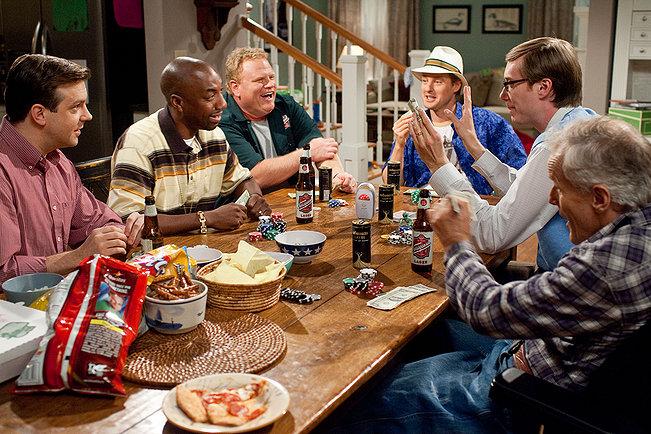I don’t know about you, but every time I was given a hall pass in junior high or high school, it instantly became my duty to take as much time as possible with whatever mission I’d been given, making as many pointless stops and misadventures along the way as I could. It’s not the most responsible way to get a thing done, but it was fun while it lasted. This is the pervading atmosphere of “Hall Pass,” only on a much bigger, more serious playing field.
Rick (Owen Wilson) and Fred (Jason Sudeikis) are thirty-something married men with a problem: both of them have shamelessly wandering eyes, and their wives have had enough of it. Having gotten the idea from a psychologist friend, Maggie (Jenna Fischer) and Grace (Christina Applegate) decide to give Rick and Fred hall passes: one week off-duty from their marriages; they are allowed to do whatever or whomever they want with no consequences. The dumbstruck duo quickly takes advantage of their newfound freedom by rounding up their highly amused married buddies and planning to pick up as many girls as possible. However, the challenge soon becomes seeing if they have the patience, the skill, or indeed, the energy to live the single life they haven’t had for so long.
“Hall Pass” is part of this newer breed of comedies that seems to consist of two building blocks, middle-aged people acting like college kids and gross shock humor. For some reason, thirty- and forty-somethings exploring their sexual natures is laugh-worthy, as they are apparently completely inept and unable to handle the pressure of how “the game” has changed. I can’t decide if that reflects more poorly on their generation or ours. Meanwhile, badly- done shock gags aren’t working anymore. If I wanted to feel sickened while being entertained, I would watch Jersey Shore.
Another annoyingly thing this film does is stereotype. As men, Rick and Fred read as two overgrown horndogs who can’t control their libidos. As married people, they’re depicted as dorky, pitiful and out of touch with the mainstream world and the younger generation that they’re trying to appeal to. Maggie and Grace are made to come off as more clever than their counterparts, but with interests that are considered dumb and trivial. Stereotypes exist for a reason, but the overall message seems to be that marriage turns people into uninteresting basket-cases who can’t get out of their own way to solve their own problems.
I’m a little torn over what this movie accomplishes, if anything. On one hand, I can’t believe we now have a film about people giving their partners permission to cheat and it being treated like some sort of fantasy – the comfort of homelife as well as the excitement of promiscuity. The plot sounds like a sarcastic comment a woman might throw out at her husband during an argument: “Fine, if you’re so bored with me, why don’t you go cruising downtown for the night? Have fun!” It toes a very bold line that puts things into perspective.
On the other hand, the sheer ridiculousness of the situation emphasizes the movie’s main point: we often don’t know the true value of what we have until we realize how it would be not to have it. The truth is, sometimes we need to be taken out of the situations we’re stuck in to come to terms with what we really want. “Hall Pass” achieves that end through insanely questionable means, but I suppose the lesson is worth the trouble.
2 out of 4 stars









